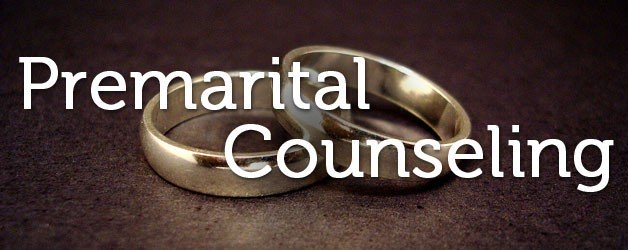Marriage is often described as a beautiful journey, but let’s be honest—it’s also one of the toughest commitments you’ll ever make. Planning the wedding is exciting: choosing the dress, flowers, cake, and venue. But what about preparing for the life that comes after the honeymoon? Too often, couples spend months planning the perfect wedding day and very little time preparing for the decades of partnership that follow.
This is why pre-marital coaching is such a game-changer. It gives couples tools, perspective, and strategies to build marriages that last. While love provides the spark, coaching ensures that the flame doesn’t burn out when real life—bills, stress, disagreements, and children—enters the picture.
Why Pre-Marital Coaching Matters
Falling in love is natural, but staying in love requires intention. Pre-marital coaching bridges the gap between romance and reality. It prepares couples to face not just the joys but also the inevitable challenges of married life.
Without preparation, couples often stumble into:
- Communication breakdowns that make small disagreements explosive.
- Financial conflict over spending, saving, and debt.
- Mismatched expectations about roles, intimacy, or children.
- Stress from external factors like in-laws, work, or relocation.
Pre-marital coaching provides a structured environment to explore these topics before they become crises. As the American Association for Marriage and Family Therapy notes, couples who invest in structured preparation report higher satisfaction and reduced divorce rates compared to those who don’t. Coaching is not a luxury—it’s a safeguard.
Busting the Myths About Pre-Marital Coaching
Despite its benefits, many couples shy away from coaching because of misconceptions. Let’s clear up the myths:
- Myth 1: “We don’t need coaching because we’re in love.”
Love is essential, but it doesn’t automatically provide conflict-resolution skills or financial strategies. - Myth 2: “Coaching is for couples in trouble.”
Wrong. Coaching is preventive, not corrective. It’s like taking driving lessons before hitting the highway. - Myth 3: “Coaching is just therapy with a different name.”
Not quite. Therapy often focuses on healing past wounds. Coaching looks forward, offering actionable strategies for the future.
Understanding this distinction helps couples see coaching not as a weakness but as wisdom.
Pre-Marital Coaching vs. Waiting for Trouble
Couples often think they can handle issues as they come, but waiting until problems explode is risky. Here’s how coaching compares with the “figure it out later” approach:
| Approach | Pre-Marital Coaching | Waiting for Trouble |
|---|---|---|
| Conflict Management | Learn to resolve issues calmly before they escalate | Fights repeat without resolution |
| Financial Planning | Set shared goals, budgets, and money roles | Money becomes a recurring argument |
| Communication Skills | Practice healthy dialogue early | Misunderstandings deepen emotional distance |
| Intimacy & Connection | Build trust and emotional safety | Intimacy fades under resentment |
| Future Alignment | Clarify visions for children, careers, lifestyle | Misaligned expectations cause drift |
The difference is clear: coaching prepares you to thrive; waiting often means surviving crisis after crisis.
What to Expect in Pre-Marital Coaching
Pre-marital coaching isn’t a lecture—it’s a guided conversation. Coaches create a safe, neutral space where couples can openly explore issues they may not have discussed yet.
Typical areas covered include:
- Values and Beliefs: How do religion, culture, or upbringing shape your expectations?
- Roles and Responsibilities: Who handles chores, bills, or child-rearing?
- Finances: Do you save aggressively or spend freely? How do you handle debt?
- Communication Styles: How do you express love or frustration?
- Conflict Management: Do you fight to win, or fight to understand?
- Intimacy: What do you need emotionally and physically to feel loved?
- Life Vision: Where do you see yourselves in 5, 10, or 20 years?
Often, couples uncover topics they hadn’t thought to discuss but that could have derailed their marriage later.
How Coaching Strengthens Communication
Communication is the heartbeat of marriage. Yet, many couples enter marriage without real communication tools. They either avoid conflict or attack each other when frustrated. Pre-marital coaching shifts this dynamic completely.
Coaches teach:
- Active listening – paying attention without interrupting or planning a response.
- “I” statements – expressing needs without blame. Example: “I feel lonely when we don’t talk” vs. “You never care.”
- Conflict blueprints – agreed-upon steps to resolve fights without escalation.
- Non-verbal awareness – noticing tone, body language, and emotional cues.
A study shared by Verywell Mind highlights communication as the strongest predictor of marital success. Coaching ensures couples enter marriage already fluent in the language of love.
Emotional Benefits of Pre-Marital Coaching
Pre-marital coaching isn’t just about problem-solving—it builds confidence and security. Couples often report emotional benefits such as:
- Clarity – understanding themselves and their partner more deeply.
- Confidence – knowing they have the tools to face challenges.
- Trust – feeling secure in one another’s commitment.
- Emotional intimacy – sharing fears, dreams, and vulnerabilities without judgment.
These emotional benefits strengthen not only the relationship but also the individuals, making them better partners and people.
The Overlooked Topic: Money
Money is one of the top reasons couples fight and, in some cases, divorce. Pre-marital coaching ensures couples discuss finances early. Topics include:
- Budgeting as a couple.
- Handling debt.
- Deciding on joint vs. separate accounts.
- Saving for big goals like a home or children.
By addressing money upfront, couples prevent financial stress from becoming a silent marriage killer.
Why Coaching Works Better Than Trial and Error
Imagine learning to swim by being thrown into the deep end. You may survive, but you’ll waste energy, panic often, and risk drowning. Trial-and-error marriage works the same way. Couples eventually learn, but often through painful fights, resentment, and even temporary separation.
Pre-marital coaching is like swimming lessons—you build skills in a safe environment before the waves hit. Coaches provide:
- Accountability: Ensuring you actually apply what you’ve learned.
- Perspective: Highlighting blind spots you might miss.
- Tailored Strategies: Advice specific to your personalities and goals.
Instead of surviving on instinct, you thrive with preparation.
The Long-Term Payoff of Coaching
When couples think about pre-marital coaching, they often see it as preparation for the wedding year or maybe the first few years of marriage. But the real value of coaching isn’t just in solving immediate concerns—it’s in the long-term payoff. The lessons, strategies, and insights gained during pre-marital coaching echo throughout every stage of a marriage. They become tools that help couples weather storms, celebrate milestones, and build a partnership that deepens over time.
1. Fewer Destructive Conflicts
One of the most obvious long-term benefits of coaching is how it transforms conflict. Every marriage has disagreements, but what matters is how couples handle them. Coaching gives couples tested methods to resolve disputes without falling into toxic cycles of blame, criticism, or stonewalling.
- Without coaching: A small disagreement about chores can escalate into a shouting match, reopening old wounds.
- With coaching: Couples use agreed-upon strategies like time-outs, “I feel” statements, or structured conversations to diffuse tension.
Over the years, these healthier conflict habits prevent resentment from piling up. Instead of being torn apart by arguments, couples grow closer through resolution.
2. Stronger Financial Stability
Money disagreements are one of the top causes of marital stress. Pre-marital coaching addresses this early, helping couples align on spending, saving, and debt management. The long-term payoff? Financial teamwork instead of financial tension.
Imagine:
- A couple who planned together for a house purchase instead of fighting over budgets.
- A couple who agreed on debt repayment strategies instead of hiding purchases.
Over decades, these financial habits reduce stress and make long-term goals achievable. The security of financial alignment becomes a foundation for the entire family.
3. Deeper Emotional Intimacy
Pre-marital coaching doesn’t just prepare couples to avoid fights—it also equips them to nurture intimacy. Emotional safety, vulnerability, and trust are cultivated intentionally. Decades later, couples who practiced these skills continue to experience closeness instead of drifting apart.
- They check in emotionally long after the honeymoon.
- They still practice vulnerability, sharing fears, dreams, and insecurities.
- They keep intimacy alive, not just physically but emotionally.
As life brings children, careers, and aging, this foundation of intimacy ensures the marriage remains a source of strength, not strain.
4. Parenting Preparedness
For couples planning to have children, pre-marital coaching pays off in parenthood. Parenting often magnifies existing dynamics—if communication or conflict resolution is weak, those weaknesses become more pronounced. Coaching ensures parents enter this stage aligned.
- How will discipline be handled?
- How will responsibilities be shared?
- What values and traditions will guide family life?
By having these conversations before kids arrive, couples avoid major clashes later. The long-term payoff is not just a healthier marriage but also a healthier environment for children.
5. Resilience During Life’s Crises
Every marriage faces unexpected challenges: job loss, illness, infertility, relocation, or caring for aging parents. These moments test even the strongest couples. Pre-marital coaching provides resilience by equipping couples with problem-solving frameworks and emotional tools.
- Instead of shutting down during a crisis, couples lean on communication habits built during coaching.
- Instead of blaming each other, they unite against the problem.
- Instead of drifting apart, they rediscover teamwork and solidarity.
This resilience makes the difference between couples who fracture under pressure and those who emerge stronger together.
6. Lifelong Personal Growth
Another long-term payoff often overlooked is individual growth. Coaching doesn’t just improve the relationship; it also transforms the people within it. Partners become more self-aware, better communicators, and more empathetic individuals. These qualities enrich not only their marriage but also their friendships, careers, and family relationships.
Over time, couples realize that pre-marital coaching wasn’t just an investment in their marriage—it was an investment in themselves.
7. Generational Impact
The benefits of pre-marital coaching don’t stop with the couple. Children raised in a stable, communicative, and loving environment learn healthier relationship habits themselves. They witness respect, problem-solving, and emotional safety at home, which shapes how they relate to others in adulthood.
In this way, the long-term payoff of coaching extends beyond the marriage to future generations. It creates a legacy of healthy love.
A Quick Snapshot: Coaching Payoffs Across the Decades
| Stage of Marriage | Challenges Couples Face | How Coaching Pays Off |
|---|---|---|
| Early Years | Adjusting to shared life | Skills prevent early conflicts from escalating |
| Parenting Years | Stress, exhaustion, financial strain | Communication & alignment keep the partnership strong |
| Mid-Life | Career changes, teenage children, burnout | Resilience tools help couples adapt together |
| Later Years | Empty nest, health challenges, retirement | Intimacy and teamwork sustain joy and companionship |
Why the Payoff Matters
The long-term payoff of pre-marital coaching is simple: it shifts marriage from survival mode to thriving mode. Instead of stumbling through challenges with trial and error, couples move through life stages with confidence, clarity, and connection.
Over decades, the difference is profound. Couples who skip preparation often spend years patching wounds. Couples who invest in coaching enjoy marriages that are not just enduring but deeply fulfilling.
In short: Pre-marital coaching is not about solving today’s issues—it’s about building tomorrow’s legacy. It’s the secret ingredient that turns a good marriage into a great one and ensures that love matures gracefully across a lifetime.
Couples who undergo pre-marital coaching report marriages that are not just happier, but healthier and more enduring.
Final Thoughts: Why Coaching Is the Secret to a Strong Marriage
Marriage is not just a romantic commitment—it’s a partnership that requires skills. Pre-marital coaching ensures you and your partner have the right tools from the very beginning.
It’s not about predicting problems—it’s about preventing them. It’s not about weakness—it’s about wisdom. Couples who choose coaching send a clear message: Our love matters too much to leave to chance.
So, as you prepare for your big day, remember: flowers fade, cakes get eaten, and photos gather dust—but the investment you make in your relationship will pay dividends for a lifetime.





